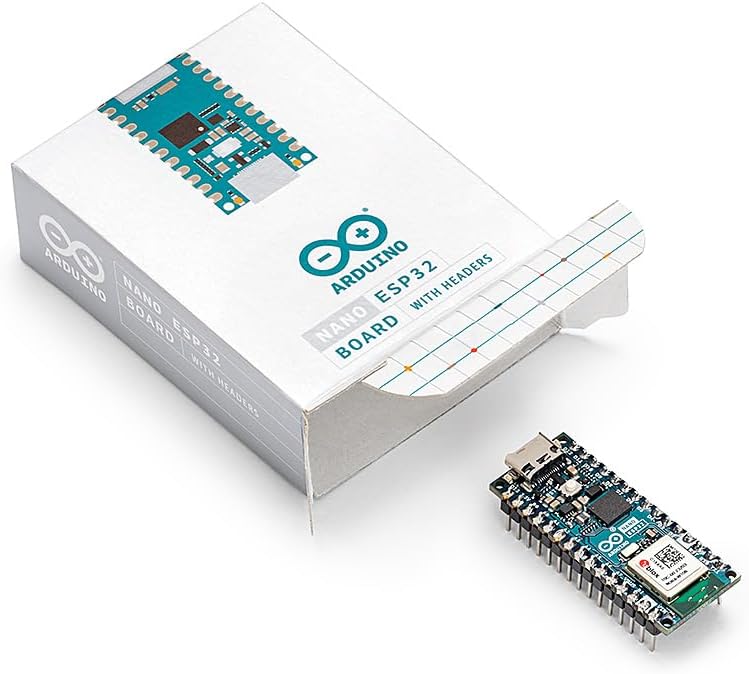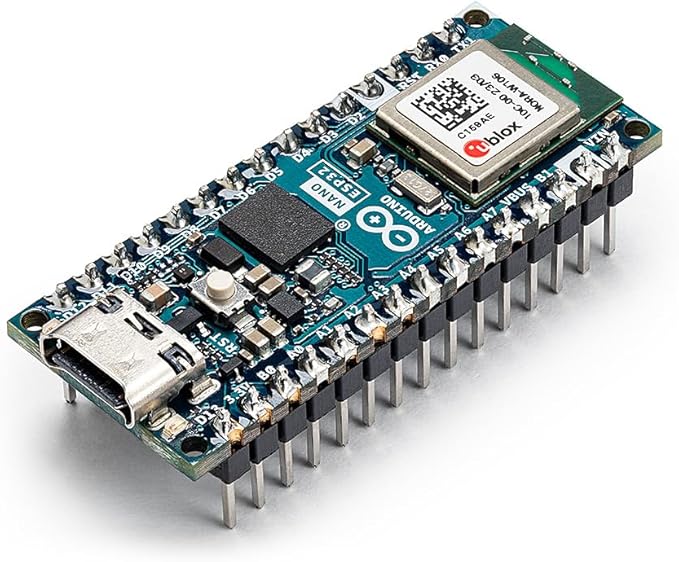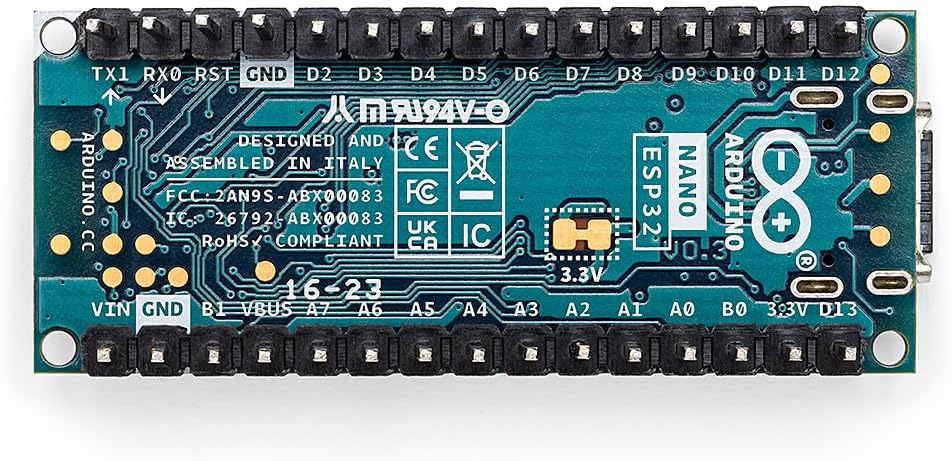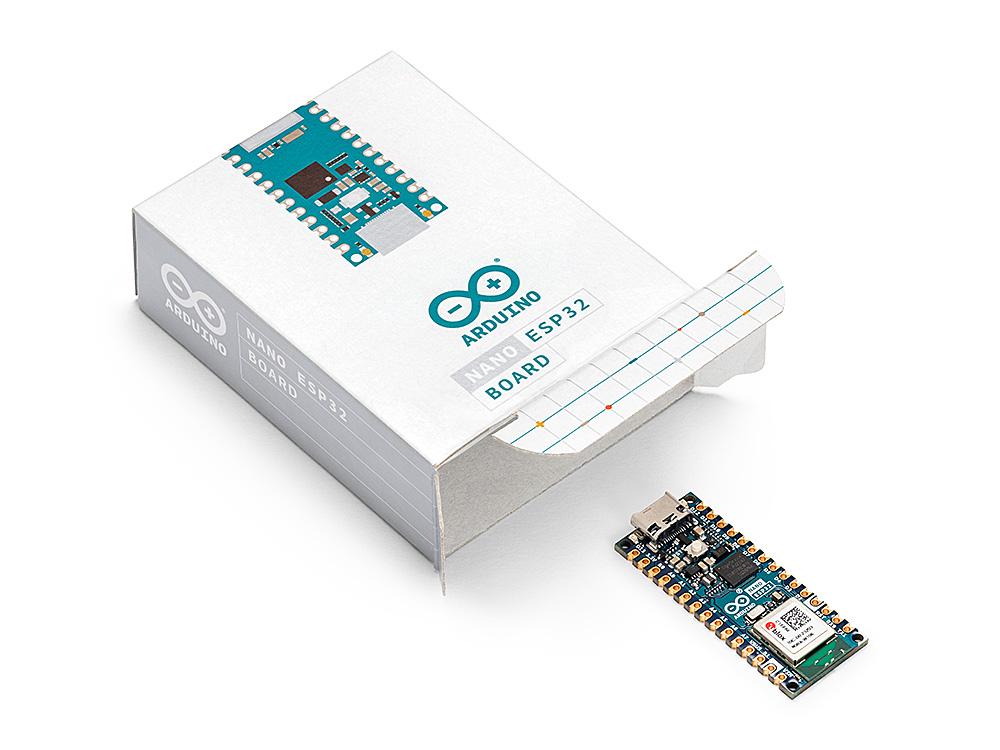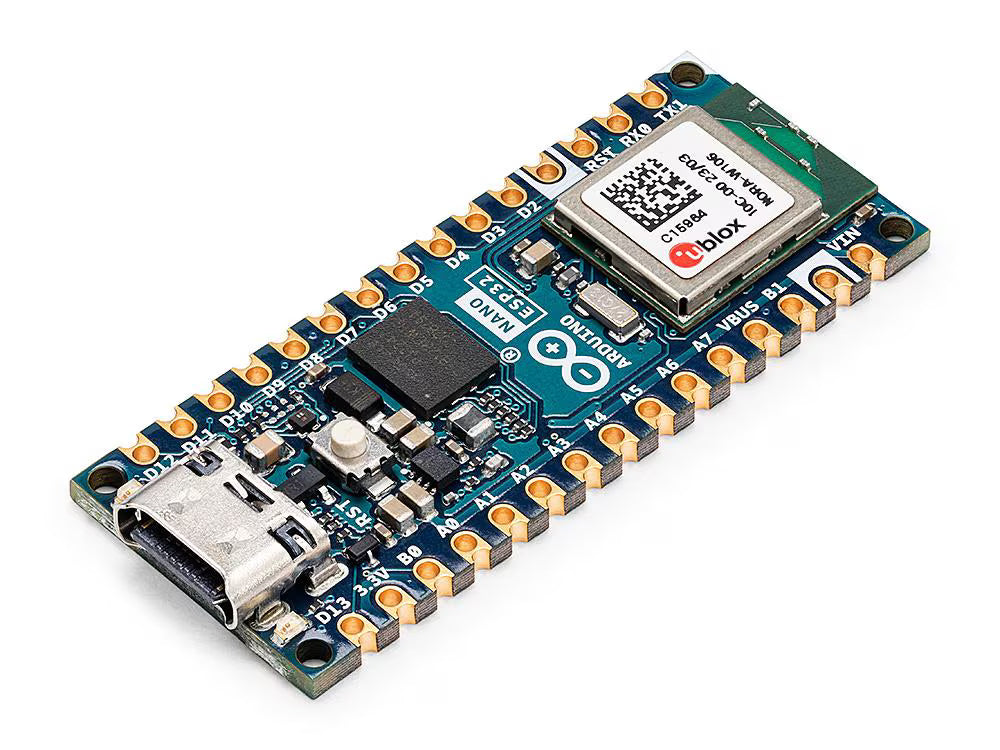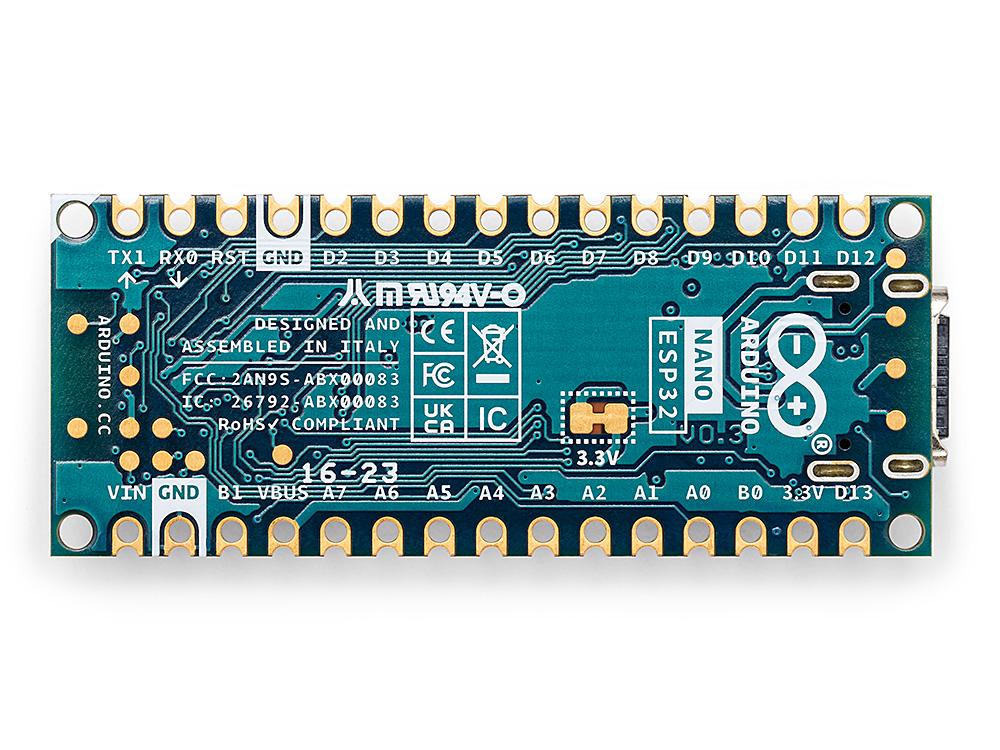Arduino Nano ESP32 WiFi Development Board
Arduinos and ESP32s have been cornerstones of the maker community for years, powering everything from DIY robotics to home automation. Arduino first gained traction with its AVR-based boards, celebrated for simplicity and accessibility in education and creative tech. Meanwhile, Espressif’s ESP8266 and later the ESP32 revolutionized the hobbyist world with affordable Wi-Fi-enabled microcontrollers that met the demand for connected devices.
Although Arduino has long supported ESP32 development through its open-source cores, it wasn’t until the launch of the Arduino Nano ESP32 that Arduino officially embraced the ESP32 as the native microcontroller on one of its boards.
The Nano ESP32 WiFi combines the ease of Arduino with the power of Espressif’s ESP32-S3, offering a small but mighty platform for connected projects:
- Dual Wireless Connectivity → Wi-Fi® and Bluetooth® LE 5.0 for flexible communication.
- Compact Size → Nano form factor makes it perfect for space-constrained designs.
- High Processing Power → Dual-core Xtensa® LX7 (up to 240 MHz) for multitasking and complex tasks.
- IoT & Automation Ready → Real-time data handling and cloud compatibility.
- Security Built-In → HTTPS, SSL, and advanced encryption for safe data transfers.
- Energy Efficient → Ultra-low power consumption, ideal for battery-powered devices.
Specifications
Microcontroller: ESP32-S3 (u-blox® NORA-W106-10B module)
Processor: Xtensa® Dual-core 32-bit LX7, up to 240 MHz
Memory
- ROM: 384 kB
- SRAM: 512 kB
- RTC SRAM: 16 kB (low-power mode)
- PSRAM: 8 MB
- Flash: 16 MB external (128 Mbit)
Power
- Operating Voltage: 3.3 V
- Supply: 5 V via USB-C® or 6–21 V VIN
Connectivity
- Wi-Fi®: 802.11 b/g/n (2.4 GHz)
- Bluetooth® LE v5.0
I/O
- 14 digital pins (21 including analog)
- 8 analog inputs (RTC mode)
- SPI (D11, D12, D13), I2C (A4/A5), UART (D0/D1)
- Protocols: SPI, I2C, I2S, UART, CAN (TWAI®)
Low Power Modes*
- Deep sleep: ~7 μA
- Light sleep: ~240 μA
Extra Features
- Built-in antenna
- ULP coprocessor
- Power Management Unit (PMU)
- ADC support in RTC mode
